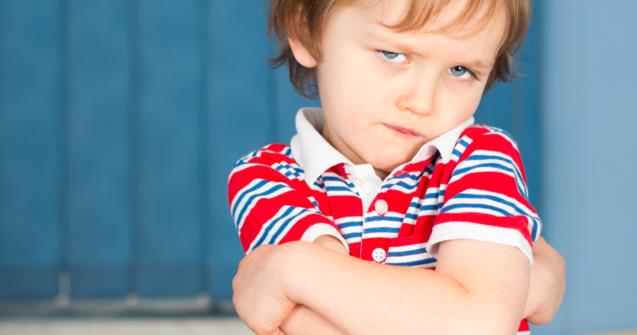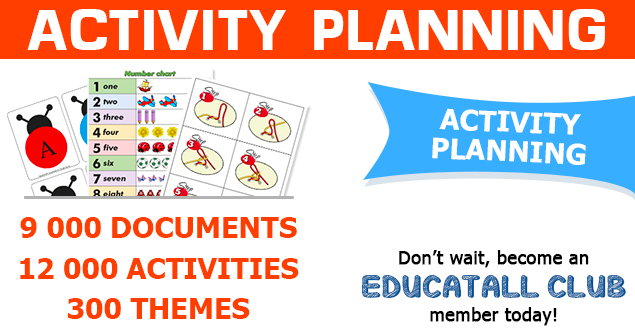
How to help children manage their impulsiveness
Impulsiveness is common among children who have special needs. It can cause a great deal of disorganization. The adults who care for special needs children may constantly feel as if they have a time bomb on their hands, since they have no idea when children will "explode". What's more, they may have the impression they are walking on eggshells or be afraid even the simplest refusal will spark a tantrum. Does this ring a bell? Probably. After all, impulsiveness is frequently observed in young children.
What is impulsiveness?
If we were to try to define impulsiveness, we may say that it represents the thoughtless side of a person or action. In real terms, impulsiveness is a lack of self-control that leads children to react very quickly, that prevents them from thinking before they act and often, leads them to overreact when they face a negative situation or emotion.
How does impulsiveness manifest itself?
It is not always easy to affirm or confirm that we are really dealing with a problem related to impulsiveness. Very often, at a young age, we believe that a lack of maturity or a lack of self-control causes children to act without thinking. A child who spontaneously hits one of his peers, a child who gets up before you have finished giving your instructions to the group, and a child who disregards rules can all be associated with poor self-control. Children want to have or do something and they immediately spring into action, as soon as the thought crosses their mind.
Several behaviours may be present. Here is a short, non-exhaustive list of behaviours you can encounter. A child may:
- speak over his early childhood educator.
- steal another child's turn.
- get up very quickly at the end of an activity, before listening to complete instructions.
- explode with anger when he faces refusal.
- hit another child when he is approached.
- make errors caused by inattention, not because of an incapacity.
As previously mentioned, impulsiveness can often be linked to poor self-control which is normal in young children. As children get older, their self-control develops and their impulsive behaviour should decrease and become less intense. In one-year-olds, we may observe the first signs of self-control through their brief (but real) capacity to wait. At two or three years of age, children can tolerate frustration without necessarily exploding in anger. In general, at four or five years old, children have the capacity to calm themselves and be flexible. Several factors, such as a child's temperament, can play a big role in controlling impulsiveness. With time, you will be able to determine whether a child faces an impulsiveness problem. Certain diagnoses, for example an attention deficit order with hyperactivity, have an impulsiveness component. Once again, most diagnoses will not be made during preschool years, even if your observations lead you to suspect certain difficulties may be present.
How can you help a child control his impulsiveness?
As I often say, it is important that we, as early childhood educators, stock children's toolboxes with tools that will help them throughout life. This is also true when dealing with impulsiveness. Whether a child's impulsiveness is developmental or a real problem, your role is to help him manage it. Here's how you can fulfill this role.
- Reward good behaviour. Impulsive children can, day after day, display a great deal of negative behaviour. You may have the impression you are constantly intervening. For this reason, it is highly important that you congratulate impulsive children for good behaviour to try to encourage it.
- Teach children to name their emotions and recognize the signs associated with each one. Managing emotions will have a direct impact on impulsiveness. Teach children methods they can use to control their emotions. Keep in mind that all emotions are healthy. Too often, it is the means children use to express them that you must work on. The "Emotions ladder", available in the educatall club, can represent a useful tool.
- When a child is going through a difficult situation, take the time to discuss the situation with him to help him identify solutions. Slowly, children will register the acceptable solutions you offer. This may help them avoid explosive situations.
- Watch for signs that may precede a tantrum or an impulsive act and try to divert children's attention before it's too late.
Of course, managing impulsiveness requires a great deal of patience. Take it one step at a time and try to be consistent.
Maude Dubé, Specialized educator

 Home
Home Theme activities
Theme activities
 Babies and toddlers
Babies and toddlers
 Arts and crafts
Arts and crafts
 Science
Science
 Creative recipes
Creative recipes
 Tips and tricks
Tips and tricks
 Special needs
Special needs
 Extra activities
Extra activities
 Educ-TV
Educ-TV
 Newsletter
Newsletter  Online store
Online store Educatall club
Educatall club

